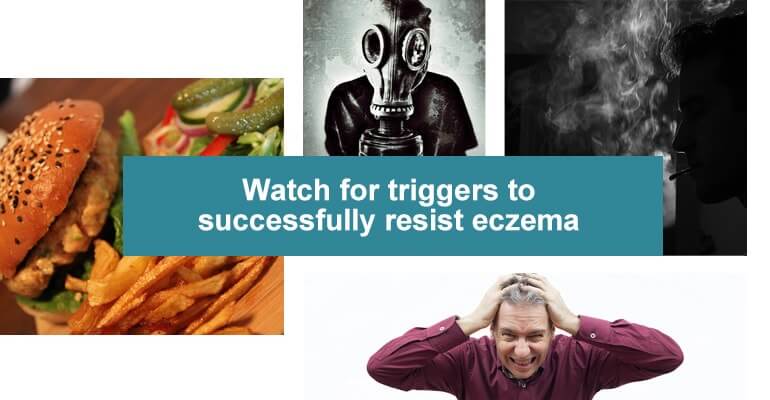Skin Hygiene and Eczema
Skin plays a protective role in the human body. However, in case of any disease, this function can not be performed properly. A vulnerability can cause a number of pathological conditions, which can lead to serious complications. Eczema is one of those conditions that requires special attention, including hygiene and care for the affected skin.
Just hygiene can’t guarantee your health
Hygiene is a significant part of every person’s life. Hygiene becomes even more important with various skin diseases when it can not only speed up the recovery, but also prevent possible future complications.
Eczema is a dermatological disease that damages not only the skin but negatively affects health in general:
- local manifestations are polymorphic eruptions. It starts with erythema which forms bubbles and erosion. All these symptoms are accompanied by local itching, burning, and pain;
- general symptoms include weakness, fatigue, sleep and memory disorders, loss of appetite, etc.
What are the causes?
Under the influence of certain triggers, the condition can get worse. Poor hygiene can cause infections of the damaged area and rashes, causing the disease to become more severe.
The food industry uses a number of preservatives and dyes which aggravate eczema. They can be used both in food manufacturing and in the production of cosmetic or household chemicals. These include: E-103, E-200, E-218, E-216, E230, E231, E232, E239, E311-313.
Remember that bacteria, viruses, and pathogenic fungi can also be the reasons of disease.
Eczema triggering factors are:
- malnutrition, dehydration;
- cosmetics and household chemicals with allergenic odors;
- wearing synthetic clothes and wool;
- being in a dirty, smoky room;
- stress, nervousness;
- pets, birds;
- bad habits, etc.
What are the complications?
Poor hygiene and ignoring doctor’s recommendations can turn eczema into the severe form with the following complications:
- dry skin;
- skin traumas due to itching;
- infection of wet wounds;
- the development of Kaposi’s herpetiformis eczema;
- worsening of the general condition;
- death.

Successful treatment directly depends on maintaining hygiene which helps to make the period of remission longer. A patient with eczema should understand that taking proper care of yourself is a key to successful recovery and a way of making life with a chronic disease easier.
Reminder for eczema patient
To avoid negative moments during an aggravation, follow the recommendations:
- Take a shower regularly. The water should be room temperature. Avoid a very hot bath or a contrast shower which can cause itching and burning. Saunas and steam rooms are not allowed with eczema.
- It is forbidden to use hard woolen cloths and brushes to avoid additional skin traumas.
- Use cosmetics, gels, or shampoos with a neutral pH balance or special skin care products.
- Choose clothes made from natural fabrics.
- Exclude eczema triggering food from your diet, such as citrus, chocolate, smoked products, canned food, etc. Eat foods with a rich content of vitamins, minerals, healthy fats (Omega 3), antioxidants, amino acids, etc.
- Drink up to 2 liters of water per day to protect your skin from dryness.
- A clean environment is important for the eczema patient. Dust and dirt can infect wounds, worsening the conditions. Wet cleaning and fresh air are important preventive measures.
- Avoid dust collectors in the room, such as carpets, soft toys, curtains, etc.
- The temperature of the room should be comfortable for the patient: 70° F and 70% humidity.
- Smoking is prohibited around people suffering from eczema.
- Exclude contact with pets or birds: pet hair and feathers are strong allergens.
- Avoid direct contact with synthetic fabrics or wool. Bed linen should be made from natural hypoallergenic materials. Use pillows and blankets with fillers that don’t cause allergic reactions.
- Use only natural detergents when doing laundry, and rinse thoroughly. Changing your underwear daily will help in preventing the development of infection in damaged areas.
- Avoid household chemicals and other substances to control aggravation or to prevent worsening during relapse.
- It is necessary to avoid stressful situations. Walks, yoga, movies, exhibitions, etc. are great ways to release stress. Herbal teas provide a calming and relaxing effect, improving sleep and mental state.
- Vacations and spa procedures can significantly improve the symptoms and prevent relapses, contributing to the improvement of the condition.
- UVB-lamps prevent eczema patients from aggravations. This device is convenient to use at home, on vacation, in the car, etc. UVB-lamps aren’t addictive. They have minimal side effects.